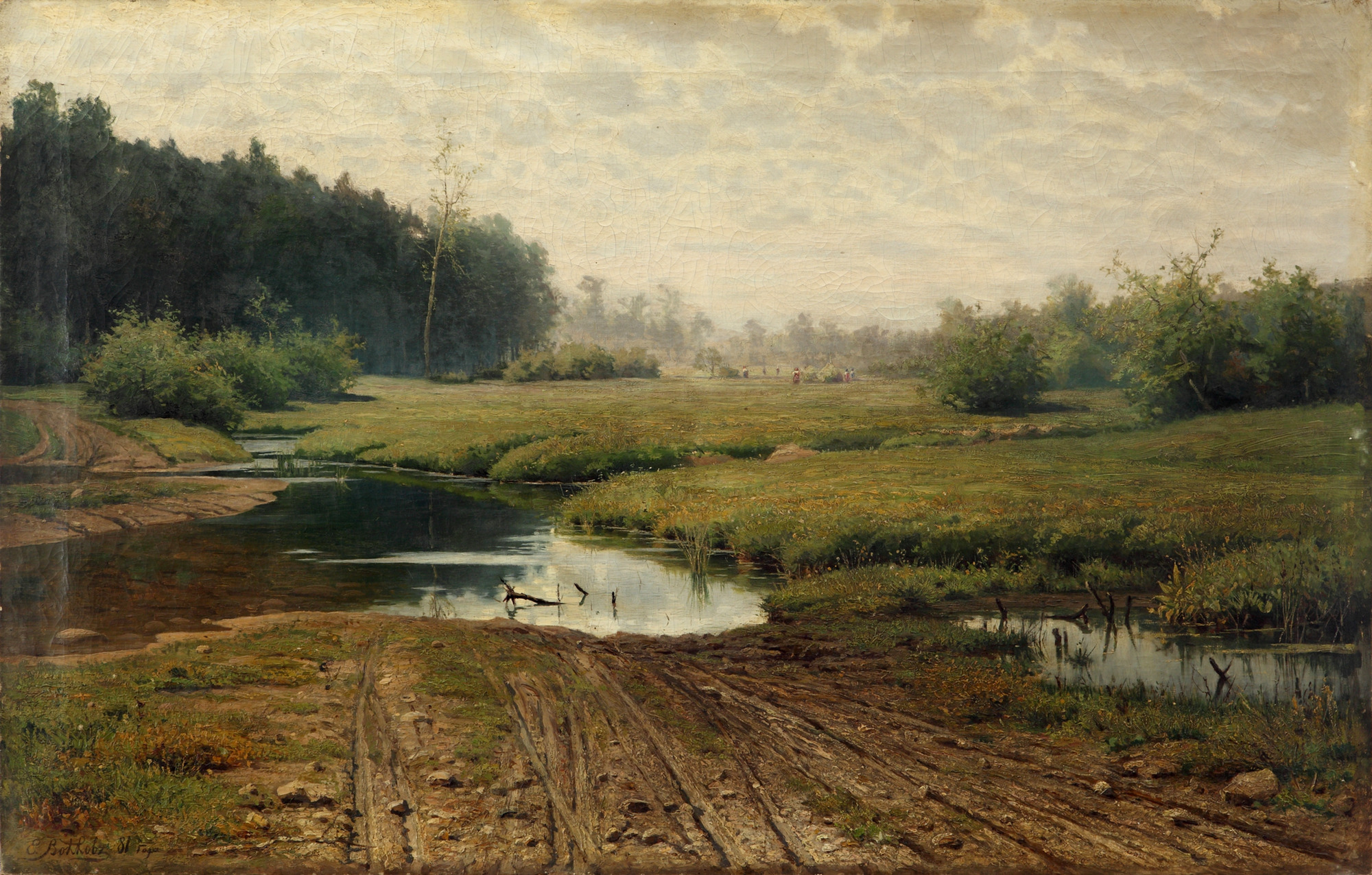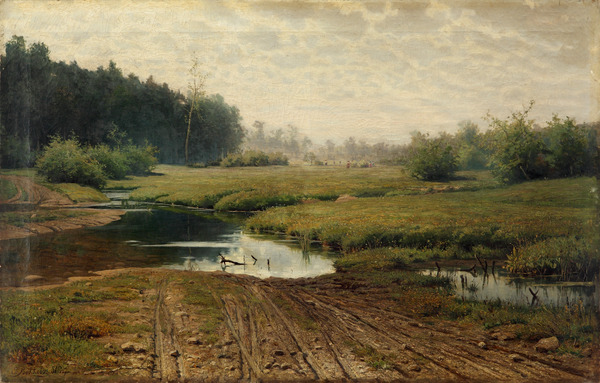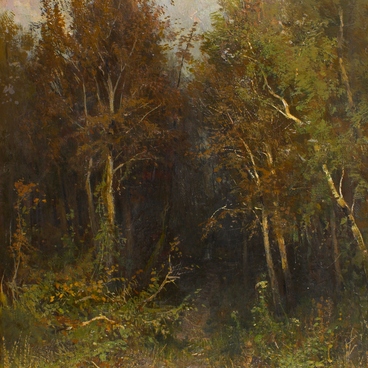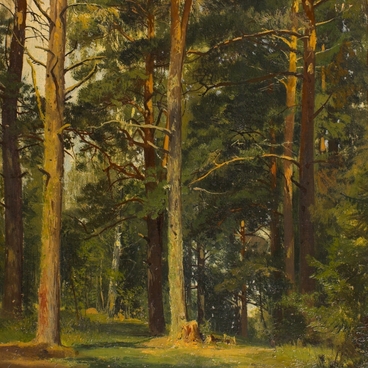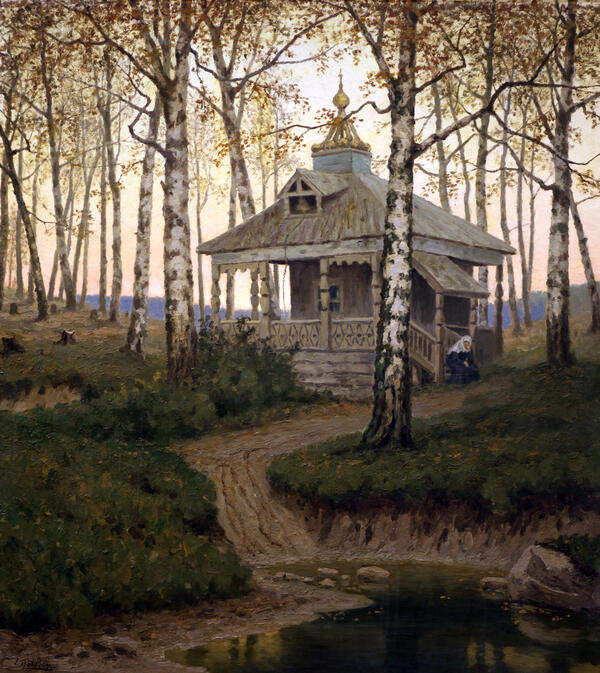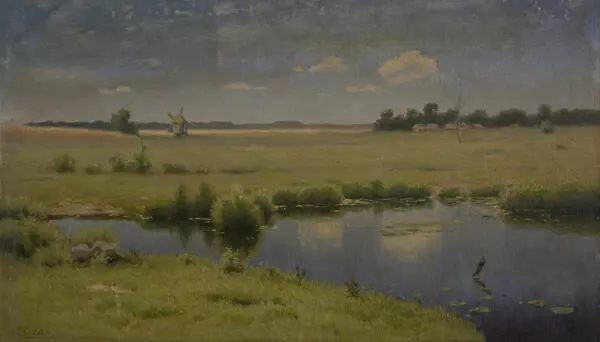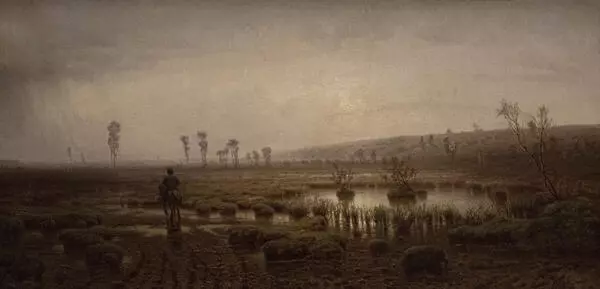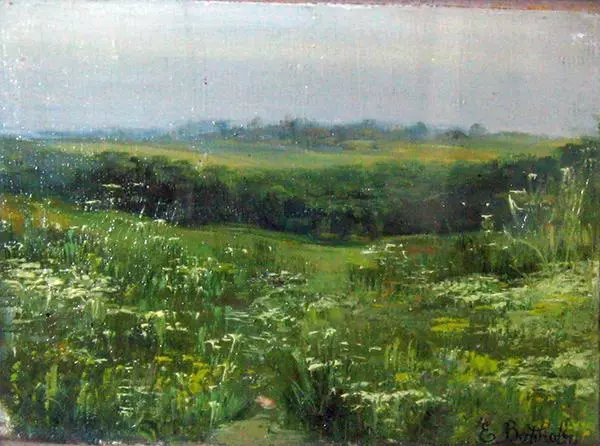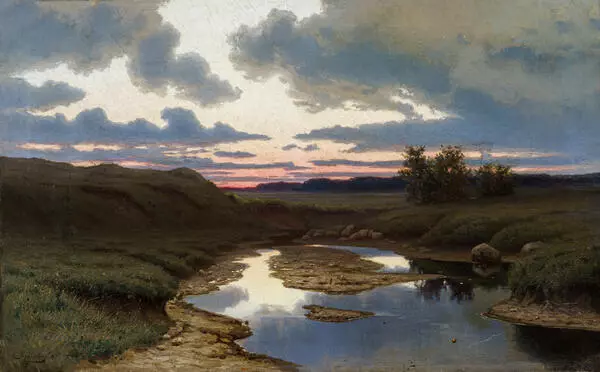Efim Volkov is one of the most outstanding Russian landscape painters who worked in the second half of the 19th — early 20th century. Etching was another field of activity he was engaged in. He created engravings on copper and zinc plates. He worked mainly in Saint-Petersburg. For a long time he had been a member of the Association of traveling artistic exhibitions, this period of time was the peak of his career.
In the period from the 1870s to the 1890s, Volkov was a well-known landscape artist. He created over 500 landscape paintings, about 1,000 sketches and many drawings in albums. Among the motifs which Efim Volkov painted most often was the nature of Central Russia. His contemporaties called him ‘the poet of the Russian autumn and Russian fogs’. The artist admired the edges of the woods, forest meadows, banks of small rivers, forest lakes and swampy places. Painting images of ordinary people, peasants, and their surrounding environment played a significant role in his art. In 1899, ‘for the fame in the artistic field’ Volkov was awarded the title of academician.
Efim Volkov’s landscape painting “Summer day after rain” shows the audience a modest piece of nature in Central Russia. A small shallow river, the tracks of carriage wheels on the washed-out road. The rain has recently stopped, and the sky is still cloudy. The distant meadow in the background is still foggy, but the figures of working peasants can already be seen on it. The artist skillfully combined the fore- and the background in the composition, carefully painted clods of mud, wheel tracks, grass and the reflection of clouds in the smooth surface of the stream in the foreground. In the picture he showed the state of nature after it rained for a long time, when the nature has not yet woken up, it is peaceful and quiet around. This state of nature is emphasized by the colors used on the canvas: dimmed darkish shades of green, warm brown in the foreground and pearl-gray tones of clouds. The sky and the stream are painted with light golden shades that show the audience the turning point: soon the bad weather will end and the sun will come out again.
Besides the Krasnoyarsk Art Museum named after V.I. Surikov Efim Volkov’s paintings are exhibited in the Tretyakov State Gallery, the Russian Museum, and the Art Museum in Odessa.
In the period from the 1870s to the 1890s, Volkov was a well-known landscape artist. He created over 500 landscape paintings, about 1,000 sketches and many drawings in albums. Among the motifs which Efim Volkov painted most often was the nature of Central Russia. His contemporaties called him ‘the poet of the Russian autumn and Russian fogs’. The artist admired the edges of the woods, forest meadows, banks of small rivers, forest lakes and swampy places. Painting images of ordinary people, peasants, and their surrounding environment played a significant role in his art. In 1899, ‘for the fame in the artistic field’ Volkov was awarded the title of academician.
Efim Volkov’s landscape painting “Summer day after rain” shows the audience a modest piece of nature in Central Russia. A small shallow river, the tracks of carriage wheels on the washed-out road. The rain has recently stopped, and the sky is still cloudy. The distant meadow in the background is still foggy, but the figures of working peasants can already be seen on it. The artist skillfully combined the fore- and the background in the composition, carefully painted clods of mud, wheel tracks, grass and the reflection of clouds in the smooth surface of the stream in the foreground. In the picture he showed the state of nature after it rained for a long time, when the nature has not yet woken up, it is peaceful and quiet around. This state of nature is emphasized by the colors used on the canvas: dimmed darkish shades of green, warm brown in the foreground and pearl-gray tones of clouds. The sky and the stream are painted with light golden shades that show the audience the turning point: soon the bad weather will end and the sun will come out again.
Besides the Krasnoyarsk Art Museum named after V.I. Surikov Efim Volkov’s paintings are exhibited in the Tretyakov State Gallery, the Russian Museum, and the Art Museum in Odessa.
